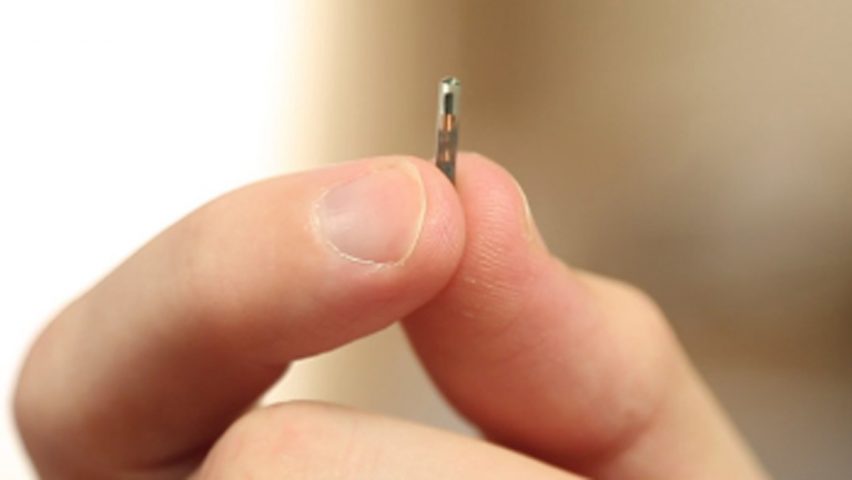
US tech company offers to turn employees into cyborgs with microchip implants
Wisconsin company Three Square Market is offering microchip implants to all of its workers, enabling them to make purchases and log into computers with the wave of a hand.
Three Square Market (3SM) claims to be the first US company providing microchipping as an option for employees.
Volunteers will have an RFID chip the size of a rice grain implanted between their thumb and forefinger, which will allow them to carry out a wide array of different activities at the company headquarters.
The free procedure would effectively turn them into cyborgs – beings with both organic and electronic body parts. 3SM expects over 50 staff members to take part.
"We foresee the use of RFID technology to drive everything from making purchases in our office break room market, opening doors, use of copy machines, logging into our office computers, unlocking phones, sharing business cards, storing medical/health information, and used as payment at other RFID terminals," said 32M CEO, Todd Westby.
RFID technology – short for Radio-Frequency Identification – uses electromagnetic fields to read information stored electronically on the implanted microchip, which is similar to those found in contactless credit cards and mobile phones. The process, known as near-field communication (NFC), works when the chip is a few centimetres away from a compatible device.
32M specialises in installing "micro markets" in office break rooms. These small convenience stores have self-service checkouts so employees can buy goods throughout the working day.
To stay ahead of the market in this field, the company is partnering with Swedish company BioHax to introduce RFID technology to micro markets – first with its own employees and then potentially at a wider scale.
BioHax has already chipped employees at Swedish startup Epicenter, where uptake of the scheme is reportedly high. However, concerns have been raised that hackers could obtain information about an individual from their implanted chip or another device.
"Europe is far more advanced in mobile and chip technology usage than the US, and we are thrilled with the growth opportunity this enhancement will bring to us," said 32M COO Patrick McMullan.
"Eventually, this technology will become standardised, allowing you to use this as your passport, public transit, all purchasing opportunities, etc," added Westby.
A "chip party" will take place at the 3SM headquarters in River Falls, Wisconsin, on 1 August 2017 for the employees to receive their implants.
Other recent advances in biomechatronic technology – merging biology, mechanics and electronics – include electronic "tattoos" that stick on the skin and monitor health.
Neil Harbisson, the first officially recognised human cyborg, told Dezeen that technology will increasingly be integrated into the body "to extend our abilities, our knowledge and our perceptions of reality" during an interview back in 2013.
More recently, Tesla founder Elon Musk predicted that humans will need to become cyborgs to survive in the near future, as artificial intelligence systems become more and more common.